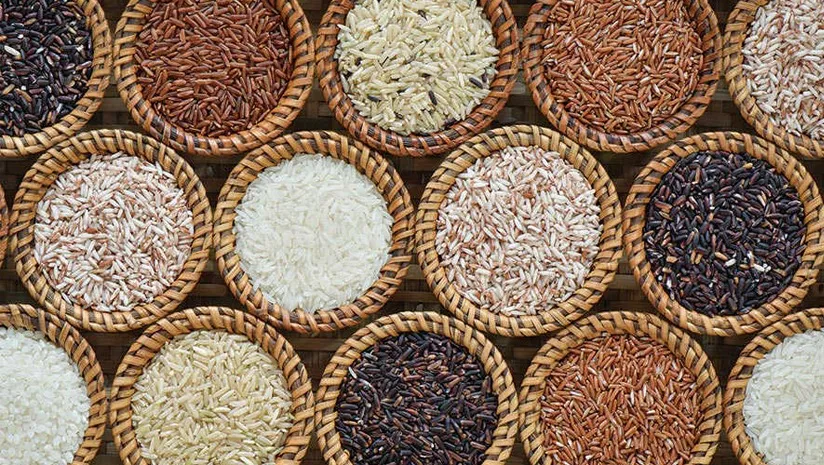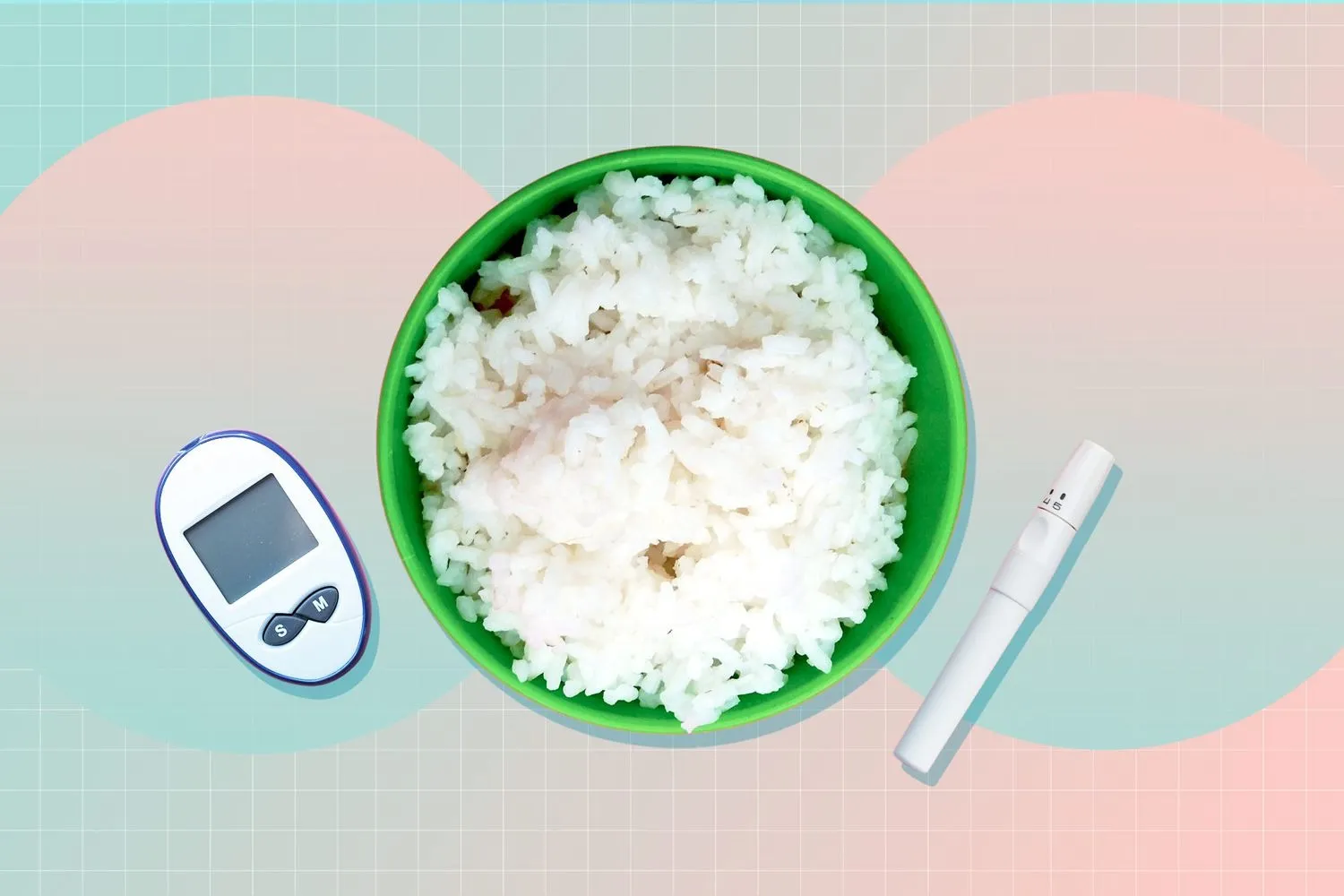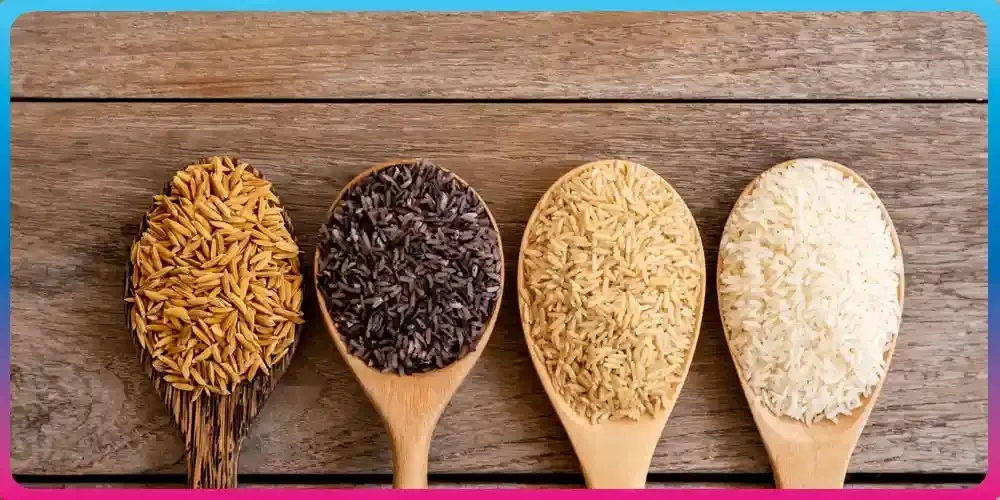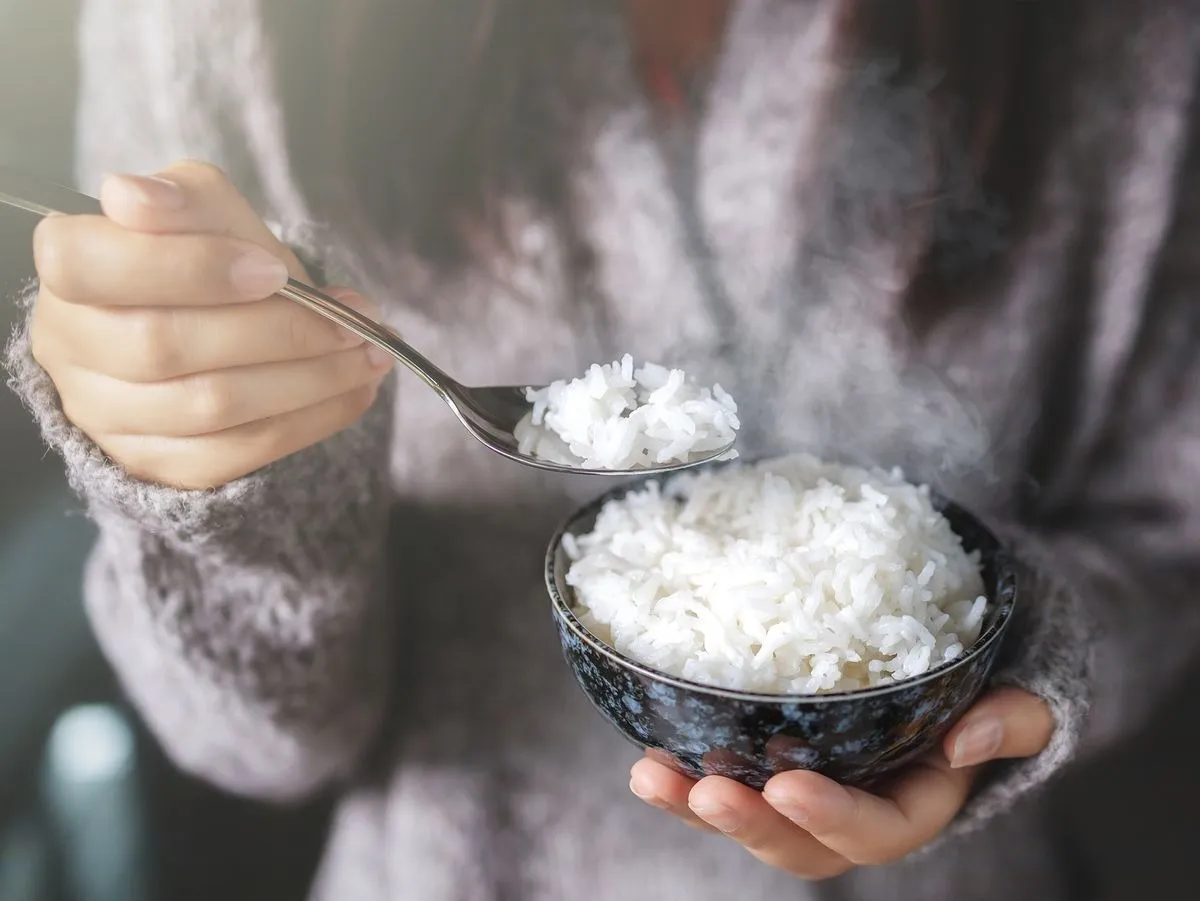Rice, a dietary cornerstone for over half the global population, boasts more than 40,000 varieties. From Spain's paella to Japan's sushi, rice dishes are integral to many cultures. Yet, with its exclusion from popular low-carb diets like Keto and Paleo, rice’s healthiness is often questioned. Is rice good for you, or is it better avoided? Let's read this article to find out.
What is Rice?
Rice is the seed of a cereal grass, forming the backbone of diets in many countries. Typically boiled or steamed, it can also be ground into gluten-free flour. This versatile grain is central to the cuisines of India, China, Southeast Asia, and beyond.
Types of Rice
Broadly, rice is categorized by shape (long, medium, or short grain) and color (white or brown).
Brown Rice
Brown rice isn't a specific variety; it's rice in its natural, whole-grain form. Retaining its fibrous bran layer, brown rice takes longer to cook and digest, offering a chewier texture and nuttier flavor than white rice.
White Rice
White rice is refined brown rice, milled and polished to remove the bran layer. This process alters its flavor and texture and extends its shelf life.
Grain Lengths
- Long-Grain Rice: Firm, dry, and separate grains when cooked (e.g., Basmati, Jasmine).
- Medium-Grain Rice: Tender, moist, and slightly sticky (e.g., Valencia).
- Short-Grain Rice: Soft, very sticky, ideal for dishes like sushi (e.g., Arborio).
Is Rice Nutritious? Is rice good for you?
Rice is a rich carbohydrate source, the body’s primary fuel. Carbs keep you energized and are crucial for exercise. Brown rice excels in nutrients, offering fiber, manganese, selenium, magnesium, and B vitamins. Dietary guidelines recommend that half your grains be whole grains, making brown rice a valuable choice. Even white rice, enriched with iron and B vitamins, remains nutritious.
Some people saying bad about rice
- Arsenic in Rice? Rice absorbs arsenic more than other crops. However, it can be safely consumed within a balanced diet. Cooking methods can reduce inorganic arsenic content by up to 60%, according to the FDA.
- Is White Rice a "Bad Carb"? While white rice loses some nutrients during processing, it’s typically enriched with iron and B vitamins. Although brown rice is more nutritious, white rice remains beneficial.
- Will Rice Cause Weight Gain? Although refined grains are often linked to weight gain, research on white rice is inconclusive. It doesn’t uniquely promote weight gain, but excess calories from any source can lead to weight gain. Whole grains like brown rice can aid in weight management.
5 Main Benefits of Rice: Is Right Good for You?
Maintaining a Healthy Weight
Brown rice’s fiber and protein content contribute to a lower glycemic index (GI), providing steadier energy release. This helps stabilize blood sugar levels, reduce cravings, and support weight management. White rice's impact on weight is less clear, with mixed study results on its connection to weight gain.
Protecting Against Chronic Disease
Brown rice’s bran layer contains flavonoids like apigenin and quercetin, which protect against diseases. Whole grains, including brown rice, are linked to reduced risks of heart disease, certain cancers, and type 2 diabetes.
Supporting Energy Levels
Athletes often choose white rice for quick energy replenishment post-exercise. Refined carbs like white rice efficiently restore muscle glycogen.
Easy Digestion
White rice is easy to digest and unlikely to cause gastric upset. It’s suitable for those with digestive issues, providing a gentle option during flare-ups of conditions like diverticulitis and Crohn’s disease.
Gluten-Free Grain
Naturally gluten-free, rice is vital for those with celiac disease or gluten sensitivity. Brown rice’s insoluble fiber promotes digestive health and nourishes beneficial gut bacteria.
Is Rice Safe for Everyone? Is rice good for you and everyone?
While rice is generally safe, arsenic contamination is a concern. Wholegrain rice may contain more arsenic than white rice. Children, with their smaller body weight and limited dietary choices, are particularly vulnerable. Rice milk should be avoided for children under five.
Conclusion
Rice, when consumed in moderation as part of a varied diet, is healthy for most people. Brown rice, in particular, is nutrient-rich and beneficial. If you have specific dietary concerns, consult a healthcare professional for personalized advice.
Visit Meme to stay up-to-date on life tips.
FAQs
1. Is brown rice healthier than white rice?
Brown rice retains more nutrients than white rice due to its bran layer. It provides more fiber, vitamins, and minerals, making it the healthier choice.
2. Can rice fit into a weight loss plan?
Yes, especially brown rice. Its fiber and protein content help keep you full and regulate blood sugar levels, supporting weight management.
3. Is rice safe for people with diabetes?
Brown rice, with its lower glycemic index, is better for blood sugar control. White rice can be consumed in moderation but may impact blood sugar more significantly.
4. How does rice compare to other grains?
Rice is versatile and gluten-free, making it suitable for many diets. Brown rice offers comparable nutrients to other whole grains like quinoa and barley.
5. Does rice cause digestive issues?
White rice is easy to digest and usually doesn’t cause digestive problems. It’s often recommended during digestive flare-ups. Brown rice, while more nutritious, may be harder to digest for some.
6. How can I reduce arsenic in rice?
Rinse rice thoroughly and cook it in excess water, draining the water afterward, to reduce arsenic content.
Maybe you are interested:

Why Do We Have Hiccups? Questions and Answers

5 Facts About Adult Scoliosis You May Not Know








